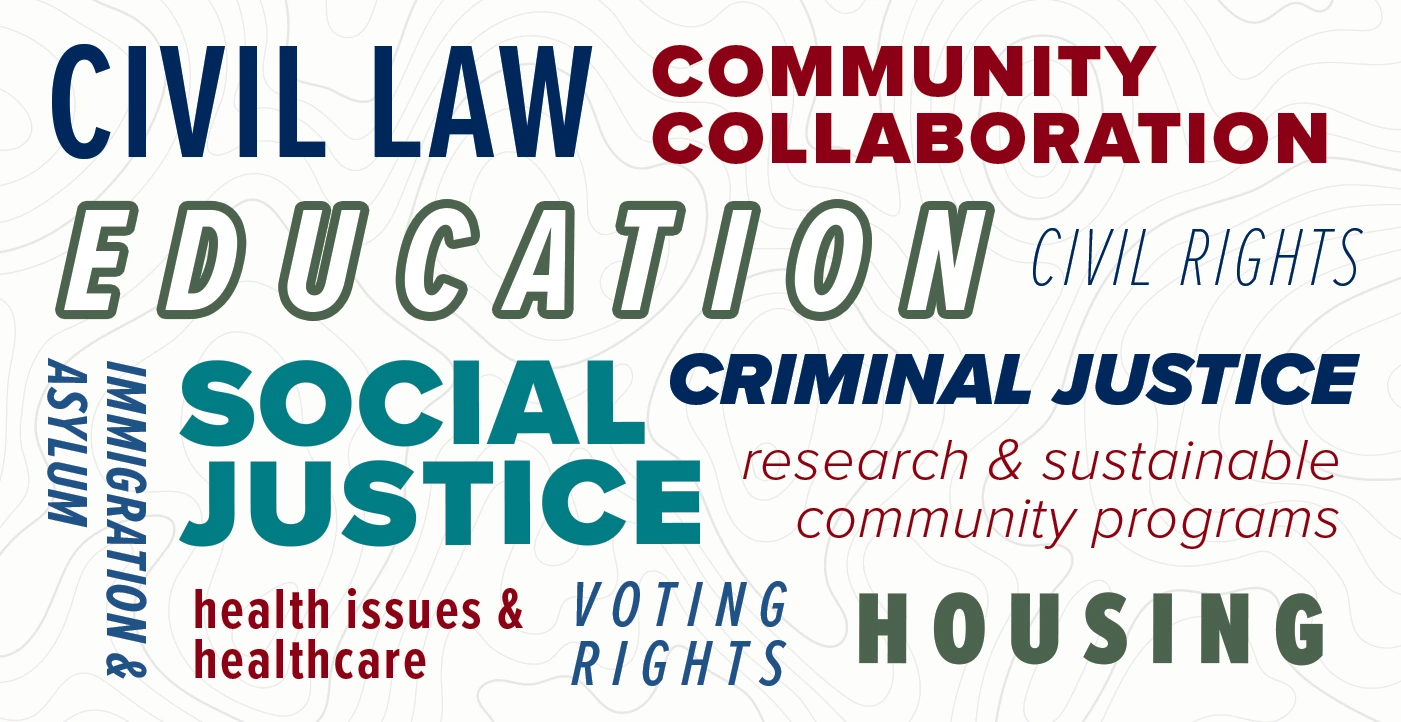Purpose of the Fund
The Peter and Pat Hirschman Fund was established to build a grant opportunity for bringing the University of Arizona and community organizations together. The Fund was established to support awards for research collaborations led by the College of Social and Behavioral Sciences, or other schools, colleges and departments of The University of Arizona, in support of and in collaboration with community-based organizations in southern Arizona, including any non-profit and/or non-governmental organizations, and governmental (or quasi-governmental) sectors, with the purpose of advancing both understandings of, and solutions to, social justice-related issues facing the regional community. The fund's utmost priority is to provide grants for collaborations that hold promise for sustainable and measurable results in the community.

This award is given in honor of Morris and Elsa Hirschman, who came to the United States in 1936 as refugees from Germany. This award is made as a tribute to all they achieved here in America, in love and grateful recognition by their son and daughter in law, Peter and Pat Hirschman.
Donor's Intent
The Donors understand the term “social justice programs” to be meant in a very broad sense. The Donors envision a sustainable program aimed at bringing together the University and community organizations to better understand and address social justice gaps or needs in the region. The Donors wish to prioritize collaborations that hold promise for sustainability among the collaborators. The ultimate goal is understanding a need and developing a sustainable program to meet the identified social justice gap or need.
The Peter and Pat Hirschman University-Community Research Partnership Fund is intended for practice-research projects that target initiating or advancing community based social justice programs, in collaboration with one or more community based organizations that will provide a sustainable program of benefit to the members of the partner organization.
The Peter and Pat Hirschman Fund proposals must:
- State the problem or issue that the community faces that this application intends to address and what is needed to know to solve the problem.
- What sustainable program(s) of benefit to the community are anticipated?
- Demonstrate timeliness and relevance through an understanding of needs, opportunities, and gaps existing in the community
- Include a commitment to shared decision making as to the methods, solutions, and impact between UArizona researchers and community partners.
- Research methodologies must be ethical, feasible, and the goals/methods must have been developed within the community, including:
- Demonstrated tangible milestones and/or measures of success and impact
- Evaluation of methodology's likelihood of completion and success
- Include a statement of anticipated impact from the partner organization that demonstrates scalability and:
- Identifies solutions that can be adapted by other communities
- Results in additional grant applications from other sources, so as to expand the impact of the Fund
We strongly encourage applications with proposals that:
- Address issues surrounding border justice and/or other issues specific to the Southwest such as immigration and asylum, housing, civil rights, health issues and healthcare, criminal justice, voting rights, poverty, employment opportunity and advancement including meaningful and justly compensated employment, and educational opportunities, including training and retraining.
- Align with the University of Arizona’s HSI & Land Grant Designations and contribute to improving the lives of the individuals, families, and communities within the region
- Demonstrate the understanding and practice of ‘servingness’ due to the university’s Hispanic Serving Institution designation
- Include leadership development components and address social justice by developing BIPOC leadership
- Offer an educational dimension and involve undergraduate or graduate students at the University of Arizona
Applications will be evaluated based on:
- Alignment with donor intent
- Community involvement
- Research merit
- Proposed feasibility of methodologies and achievability of results
- Potential community impact and sustainability of programs
- Thoroughness of responses in relation to the selection criteria
- January 14, 2025 - Grant portal opens for proposal applications
- March 21, 2025 - Grant applications due
- May 19, 2025 - Award is announced
- August 2025 & January 2026 - Award is funded and distributed in two installments
- February 2026 - Check-in/Reflection meeting with grantee(s)
- August 2026 - Peter and Pat Hirschman Fund Report Due
We intend to fund $21,250 for this cycle. Amount will be split between 1-3 grantees. We will consider proposals that range between $5,000 - $21,250 in budget. If your project is selected for funding, there is no guarantee that the full requested amount will be awarded. See Application Guidelines for funding parameters.
This grant cycle will run August 2025-August 2026. Funding will be disbursed in two installments, the first will be available in August 2025 and the second will be available in January 2026; operations prior to this will not be reimbursed. Funds will be transferred directly to the University of Arizona project partner’s department and managed by their department’s business manager.
Please read the proposal guidelines for more information on the fund's application components before applying.
Current Committee Members
Matthew Mars, College of Humanities
Yumi Shirai, College of Medicine
Daniel Martinez, College of Social and Behavioral Sciences
Maribel Alvarez, UA Southwest Center
Liane Hernandez, Op-Ed Project
Pennelys Droz, NDN Collective
David Martinez, Vitalyst Foundation
Carolina Silva, Scholarships A-Z
Previous Committee Members
Melanie Hingle, College of Agriculture, Life, & Environmental Sciences
Elise Lopez, Consortium on GBV
John Fife, Southside Presbyterian Church
Stacey Butler, College of Law
Nelda Ruiz, Southwest Folk Alliance
Michael McDonald, Tucson Audubon Society
For questions, contact the SBS Assistant Director of Community Engagement & Impact, Stephanie Noriega (smnoriega@arizona.edu).

